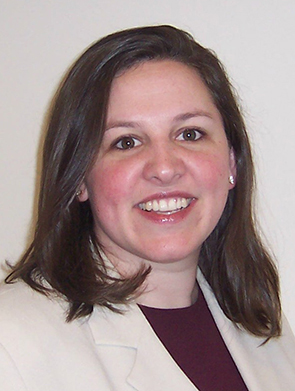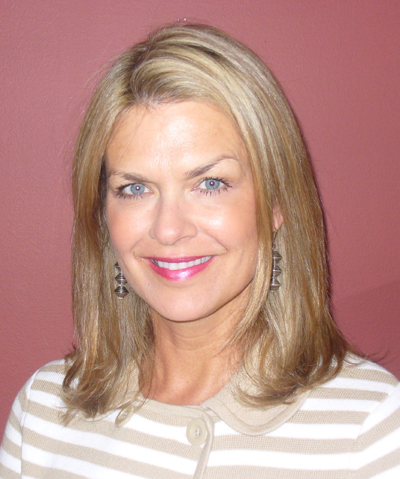Considering the major incidents that occurred in 2010, crisis and reputation management has clearly gotten the attention of corporate leaders across the globe. And you’d hope there would be some lessons learned by leadership, especially as we move deeper into 2011. Still, a Harris Interactive survey late last year found that only 9% of corporate leaders polled had crisis protocols in place.
PR News spoke with some well-respected crisis experts to learn what some of those lessons learned might be, and what other reputation/crisis trends will surface this year (and perhaps inspire that other 91%). They include: Eric Dezenhall, CEO and president of Dezenhall Resources; Sarah Tyre, senior VP/group manager, issues and crisis at Ketchum; Mike Paul, president of MGP & Associates PR; Jim Lukaszewski founder of the Lukaszewski Group; Karen Hinton, president of Hinton Communications; and Gary Wells, senior managing director of Dix & Eaton. You’ll find that their views on crisis preparedness range from cautious optimism to bleak pessimism.
PR News: From your experience with clients, was BP a wake-up call for corporations in terms of crisis preparation and response strategies? Or will it be simply in one ear and out the other?
.jpg) |
Jim Lukaszewski: Businesses rarely learn lessons from the crises of others. Most business leaders believe that such events simply can’t happen in their organizations. There is a senior management culture of ignoring and denying even the potential for serious problems. On top of that, today’s managers receive an education that tends to make them feel like supermen and superwomen who can move faster than a speeding bullet, jump huge barriers and vanquish any adverse situation that comes their way. Denial and overconfidence are the greatest deterrents to organizational readiness.
 |
Sarah Tyre: The oil spill and other high-profile crises of 2010 definitely prompted a renewed, if perhaps temporary, focus on crisis preparedness: many companies paused to wonder if their crisis plans referenced walruses. We saw a similar phenomenon following the events of 9/11. Fear is a powerful motivator, but it usually has a short shelf life, especially when management teams are juggling multiple challenges.


.jpg) |
Mike Paul: Soon after BP’s crisis broke, I received over a half-dozen calls from large corporations to review and revise their crisis preparedness plans and develop crisis preparedness drills, especially with C-suite executives and leaders of regions around the world. Bottom line: Business is up for us overall in 2011 and continues to grow.
 |
Karen Hinton: Since the BP disaster and the financial crisis, I've seen more corporate emoting about caring for people and the environment, but to be prepared for a crisis, corporations have to do more than just hire an ad agency to soften them up. They also must be willing to take a close look at their business model and culture, be honest about their weaknesses and then improve them. I definitely don't see that happening in the oil and financial service industries.
.jpg) |
Gary Wells: I would argue that the Gulf of Mexico crisis is an anomaly. Few companies ever will face a crisis of that magnitude. So, yes, chief executive officers as well as communications professionals around the world watched closely as these two disasters unfolded. But more from an intellectual perspective because few of them will believe such a crisis can happen to them.
PR News: What should companies have learned from BP’s Tony Hayward? Do you think we’ll see CEOs be more transparent because of this?
.jpg) |
Eric Dezenhall: My objective for 2011 is to not hear the word “transparent.” It has become so watered down that I don’t know what it means anymore, and it’s become a fill-in-the-blank word for self-congratulation as opposed to taking tangible action. I’m afraid that what most CEOs will learn from Hayward is that if you’re the CEO when things blow up, you’ll probably lose your job.
Lukaszewski: The lesson of Tony Hayward is present in every crisis situation. Before he left the arena, he got the oil stopped, established the most elaborate, far-reaching and effective clean-up effort in history. He hired tens of thousands of local citizens to respond to damage and contamination. He established the first-of-its-kind contemporaneous victim compensation fund, free of attorneys. While it was a revolutionary approach and it worked the way it was supposed to, it so bored the media that they hardly reported on it.
PR News: If you were to give a CEO and his or her PR team reputation management advice, what would it be?
Dezenhall:
1. There is no correlation between how much you talk and whether you’re vindicated. Sometimes less is more.
2. Corporate crises are PR problems to a smaller degree than people think. There was a direct correlation between when BP capped the well and the turn in media coverage. It was about solving the operational problem, not tweeting better.
3. Play the long game because whatever you do in the short term will be declared a mistake by the pundits—99.9% of whom have never been in one of these firestorms.
Sarah Tyre: I think the most important thing for companies is to be engaged with key stakeholders on an ongoing basis—this means ongoing, two-way dialogue and solid understanding of the real value your company's product or service delivers to your stakeholders (they way they see it, not what you believe it or want it to be). This knowledge and understanding is the best compass for navigating through a crisis.

It's time for everyone to acknowledge that social media is an intrinsic part of crisis management—especially since social media channels can give rise to a crisis, accelerate a crisis and serve as valuable tools for companies to disseminate information quickly. However, an overwhelming number of companies still have social media as a "bolt on" to existing crisis plans and procedures. 2011 should be the year where social media becomes fully integrated.

Gary Wells:
1. There is a direct correlation between your reputation and your revenue. It will always be your role as CEO when your company faces a crisis to preserve your business; it will always be your role, too, to protect your reputation. These are one and the same.
2. As CEO, you must be involved in developing the strategic response to a crisis. Permit your communications team to develop that response, but you should not cede oversight and involvement in its implementation.
3. Commit your organization and its resources to establishing a superb reputation as a trusted partner with your customers before you have problems. If people already trust you before a crisis occurs, the impact of the crisis is immediately mitigated.
PR News: Besides BP, what two crises last year should PR pros take a look at as a case study for what to do and what not to do this year?
Hinton: For what not to do: Bank of America's robo-signers that resulted in improper foreclosures for struggling homeowners.
Dezenhall: For what to do, Obama. President Obama deftly handled the widespread defeats of so many Democrats in the midterm elections. He knew it was coming, and it was every bit as bad or worse as had been projected. But he did not dwell on the defeat. Instead, he immediately admitted defeat, calling it a “shellacking.” People respect and appreciate honesty, particularly from politicians.
For what not to do, Toyota. The company responded poorly to the gas pedal recall, never adequately explaining the situation to the public. That is, what is known, what is being done in response and what is being done to ensure it does not happen again. Rather, senior executives publicly apologized. But it was never clear why they were apologizing.
Paul: I disagree. Safety was the issue with Toyota’s crisis, and they learned to move more quickly and transparently the hard way, which was by making big mistakes. In time, Toyota may be positioned as the safety kings, along with Volvo.
For what not to do, Charlie Sheen. His hubris is now legendary, and he continues to be in crisis with drinking and drugs. His family continues to enable him, along with his agent, the TV show and studio and more. If they continue to do so, we won’t have Charlie around for long.
Tyre: The threats posed by WikiLeaks prompted many companies, notably Bank of America, to start examining their houses and preparing to get the "sunshine" treatment. Others would be well advised to take this step, as WikiLeaks and other similar sites certainly will put more company reputations on the line.

A variety of situations—Toyota's recalls, the BP oil spill, J&J's recalls—highlighted the importance of putting forth the appropriate messenger, in addition to getting the message right. All three companies faced criticism for their choices, underscoring the importance of having a roster of executives who are prepared to serve as a spokesperson. This is especially important as you consider the social media space—anyone engaging on behalf of the company is serving as a spokesperson, so the social media teams need to be included in this preparation.

PR News: What are some other crisis issues PR pros should look for this year?
Paul: Look for more financial communications experts on both the agency and corporate side of our business to do the perp walk with handcuffs. Many have been involved with fraud and corruption, and will be punished for their lies in the court of law and the court of public opinion.
Wells: The speed with which you respond in a crisis now is at least as important as anything you actually say in a crisis. You cannot wait until all the facts are known before you respond. That is how companies want to handle every situation, but they can no longer afford to wait.
PR News: It's obvious that crises are magnified by the 24/7 digital environment. What will be the effect of digital/social media on crisis management in the coming months? Will we see more crises be controlled by mainly digital means?

Hinton: The main impact that digital/social media has had on crisis management is speed and efficiency. If you are nimble in your responses, then you can control the damage and possibly turn the story around. If you aren't, then it kills you and it's almost impossible to control.
Tyre: The volume of information exchanged in social media channels combined with the speed with which it travels will make it that much more important for companies to be listening to what's being said about them and where. Active monitoring systems can serve to some degree as the canary in the coal mine, enabling a company to spot problems early (e.g., customer dissatisfaction, activist allegations) and to address them before they escalate. Knowing in advance where you need to go to reach your online constituencies is also crucial to cutting through the social media clutter and getting information out to the right people quickly in the event of a crisis. PRN
CONTACT:
Eric Dezenhall, [email protected]; Karen Hinton, [email protected]; Gary Wells, [email protected]; Jim Lukaszewski, [email protected]; Mike Paul, [email protected]; Sarah Tyre, [email protected].
